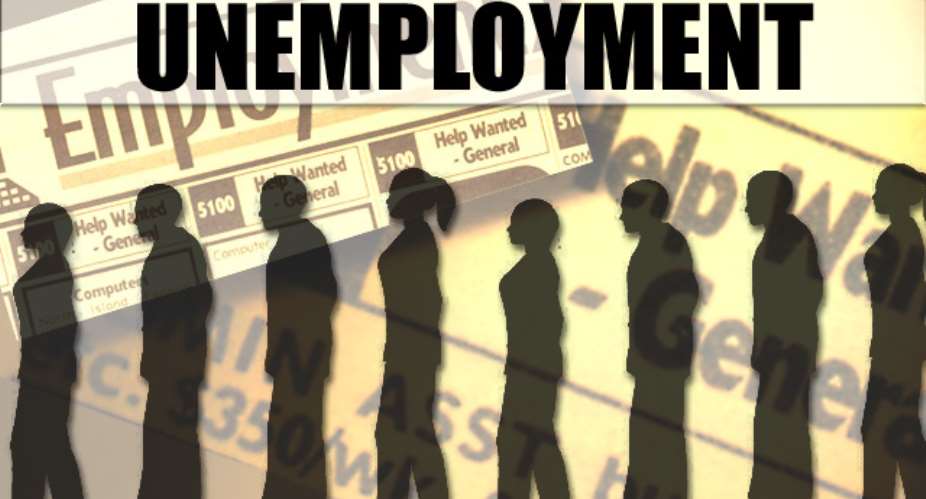The Minister of Employment and Labour Relations, Haruna Iddrisu has announced that government will come out with a new policy that will offer some tax rebate for banks to allow them employ more youth.
The move is aimed at providing young graduates with firsthand experience before they set up their own businesses.
Haruna Iddrisu who made the announcement at the launch of the Barclays Shared Growth in Accra, said government intends to implement the move in conjunction with the Association of Ghana Industries.
‘The private sector must lead the way and you must be supported to lead the way because government cannot offer the needed jobs to many enterprising young people who are getting out of university and out of college and I'm particularly happy that the AGI is part of this partnership and I'm happy to announce that President Mahama's government is happy to partner the private sector particularly the banking institution to offer tax rebates to those corporate institutions that will offer employment to young starters in the industry’.
The World Bank in its latest report on jobs in Ghana has revealed that about 48 percent of the youth in the country, who are between 15-24 years do not have jobs.
The report dubbed the “Landscape of Jobs in Ghana,” explores the opportunities for youth inclusion in Ghana's labour market.
“In Ghana, youth are less likely than adults to be working: in 2012, about 52% of people aged 15-24 were employed (compared to about 90% for the 25-64 population), a third were in school, 14% were inactive and 4% were unemployed actively looking for job.
Young women in the same age group are particularly disadvantaged and have much higher inactivity rates that men: 17% of young female are inactive as opposed to 11% of males,” the report added.
It recommended that government must work towards equipping the youth with relevant skills through the educational system.
Unemployment high in urban centres
The Ghana Living Standards Survey for the year 2012/2013 revealed that the unemployment rate in the country “is marginally higher for females (2.0%) than males (1.6%) and higher in urban areas (3.5%) than in rural areas (0.8%).”
The survey estimates that 250,000 young men and women enter the Ghanaian labour market every year with only 2% absorbed in the formal sector whilst the 98% seek employment in the informal sector or remain unemployed.
It adds that 98.1% of “Ghana's working population – 10, 517,394 – are employed; putting unemployment at 1.9%. Among the age groups, the rate of unemployment is highest within the 15 to 24 age cohort (3.2%); males (3.3%), females (3.0%) and urban (7.2%).”
By: Lawrence Segbefia/citibusinessnews.com/Ghana





 There’s nothing you can do for us; just give us electricity to save our collapsi...
There’s nothing you can do for us; just give us electricity to save our collapsi...
 Ghanaian media failing in watchdog duties — Sulemana Braimah
Ghanaian media failing in watchdog duties — Sulemana Braimah
 On any scale, Mahama can't match Bawumia — NPP Youth Organiser
On any scale, Mahama can't match Bawumia — NPP Youth Organiser
 Never tag me as an NPP pastor; I'm 'pained' the 'Akyem Mafia' are still in charg...
Never tag me as an NPP pastor; I'm 'pained' the 'Akyem Mafia' are still in charg...
 Your refusal to dedicate a project to Atta Mills means you never loved him — Kok...
Your refusal to dedicate a project to Atta Mills means you never loved him — Kok...
 2024 elections: I'm competent, not just a dreamer; vote for me — Alan
2024 elections: I'm competent, not just a dreamer; vote for me — Alan
 2024 elections: Forget NPP, NDC; I've the Holy Spirit backing me and nothing wil...
2024 elections: Forget NPP, NDC; I've the Holy Spirit backing me and nothing wil...
 2024 elections: We've no trust in judiciary; we'll ensure ballots are well secur...
2024 elections: We've no trust in judiciary; we'll ensure ballots are well secur...
 Performance tracker: Fire MCEs, DCEs who document Mahama's projects; they're not...
Performance tracker: Fire MCEs, DCEs who document Mahama's projects; they're not...
 Train crash: Railway ministry shares footage of incident
Train crash: Railway ministry shares footage of incident
